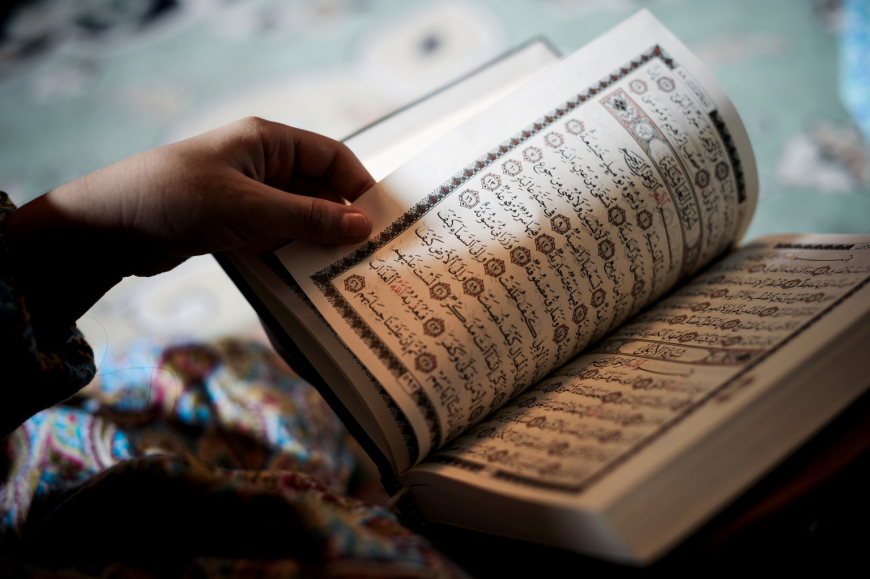How Does Patience Empower the Soul? Motivation and Spiritual Strength Through Quranic Verses
Discover the transformative power of patience through Quranic wisdom. Learn how to stay resilient, find inner peace, and stay motivated during life’s trials with divine guidance.

Patience — or sabr in Arabic — is one of the most emphasized virtues in the Quran. It’s not merely about waiting; it’s about enduring with dignity, trusting Allah’s plan, and remaining steadfast in the face of adversity. In a world full of uncertainty, loss, and emotional turbulence, patience becomes a spiritual anchor. This article explores how patience empowers the soul, motivates the believer, and transforms hardship into growth — all through the lens of Quranic guidance.
One of the most powerful verses on patience is: “O you who have believed, seek help through patience and prayer. Indeed, Allah is with the patient.” (Surah Al-Baqarah 2:153). This verse is not just comforting — it’s a divine promise. Knowing that Allah is with those who show patience gives the believer strength that transcends worldly support. It’s a reminder that patience is not weakness, but a form of spiritual power.
Life is filled with tests. Allah says: “And We will surely test you with something of fear and hunger and a loss of wealth and lives and fruits, but give good tidings to the patient.” (Surah Al-Baqarah 2:155). Trials are not punishments; they are opportunities to grow, to reflect, and to draw closer to Allah. Patience is the key to unlocking the wisdom hidden within these tests.
The story of Prophet Ya’qub (Jacob), peace be upon him, is a profound example of beautiful patience. When his sons brought him false evidence of Yusuf’s death, he responded: “So patience is most fitting. And Allah is the one sought for help against that which you describe.” (Surah Yusuf 12:18). His response wasn’t passive — it was full of faith, grace, and spiritual maturity. This is what the Quran calls “sabrun jameel” — beautiful patience.
Another verse that inspires resilience is: “And whoever relies upon Allah – then He is sufficient for him.” (Surah At-Talaq 65:3). Patience is deeply connected to tawakkul — trusting Allah. When a person truly believes that Allah is enough, they find peace even in chaos. This trust fuels motivation, because the believer knows that every hardship has a purpose, and every delay carries wisdom.
Patience is also linked to leadership and influence. Allah says: “And We made from among them leaders guiding by Our command when they were patient and [when] they were certain of Our signs.” (Surah As-Sajda 32:24). Those who endure with faith become examples for others. Their strength becomes a source of guidance, and their patience becomes a legacy.
From a psychological perspective, patience reduces stress, improves emotional regulation, and enhances mental clarity. It allows the believer to pause, reflect, and respond wisely rather than react impulsively. In moments of anger, grief, or anxiety, patience acts as a shield — protecting the heart and preserving dignity.
Practically speaking, how can one cultivate patience?
1. Daily Prayer (Salah): Regular connection with Allah through prayer grounds the soul and reminds us of divine timing.
2. Remembrance (Dhikr): Repeating phrases like “Hasbunallahu wa ni’mal wakeel” (“Allah is sufficient for us, and He is the best disposer of affairs”) calms the heart and strengthens resolve.
3. Reading Quran: Verses about patience offer perspective and comfort. They remind us that even the prophets faced trials — and overcame them through sabr.
4. Reflection and Journaling: Writing down thoughts, emotions, and prayers helps process pain and track spiritual growth.
5. Seeking Support: Talking to trusted friends, scholars, or counselors can reinforce patience and provide clarity.
The Quran also promises immense reward for patience: “Indeed, the patient will be given their reward without account.” (Surah Az-Zumar 39:10). This verse is deeply motivational. It tells us that patience isn’t just a virtue — it’s an investment in the Hereafter. Every moment of restraint, every tear held back, every silent prayer — all are recorded and rewarded beyond measure.
Socially, patience fosters harmony. In families, workplaces, and communities, patient individuals are often the peacemakers. They listen more, judge less, and create environments of trust. Their calm presence diffuses tension and invites understanding.
Spiritually, patience deepens the believer’s relationship with Allah. It’s in the waiting, the enduring, the trusting — that faith is refined. The soul learns to surrender, not out of defeat, but out of love and conviction. This surrender brings peace, purpose, and profound motivation.
It’s important to remember that patience is a skill. No one is born patient. It’s developed through practice, prayer, and perspective. Every challenge is a chance to strengthen sabr. Every delay is a lesson in divine wisdom. Every disappointment is a doorway to spiritual elevation.
The Prophet Muhammad (peace be upon him) said: “No one is given a gift better and more comprehensive than patience.” (Bukhari and Muslim). This hadith encapsulates the essence of sabr — it’s a gift, a shield, and a source of strength.
In conclusion, patience is not passive — it’s powerful. It’s not about doing nothing — it’s about doing the right thing at the right time with the right mindset. Through the Quran, we learn that patience is a path to peace, a sign of faith, and a key to success. May we all strive to embody sabr in our lives, drawing strength from divine words and walking with grace through every trial.
For more spiritual insights and Quranic reflections, visit our website: https://infoqraf.com/en








